How to Do Your Banking in Ecuador (What We’ve Learned)
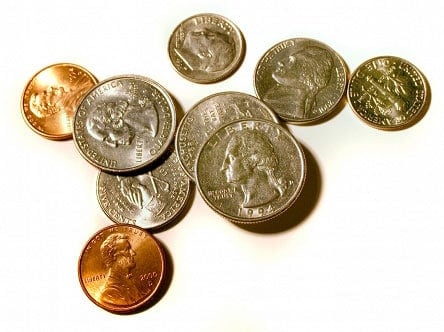
When we first started to seriously consider moving to Ecuador one of the many questions that came up had to do with banking.
Of course, ATM cards and credit cards work fine here, but what if a card got lost or stolen? What if our U.S. bank card expired between trips to the U.S.?
How would we access our money?
Also, we are really not that comfortable going to ATMs to pull out several hundred dollars for rent and other monthly expenses so we started looking for an alternative to the constant ATM card use.
Here are a few things we’ve learned about banking in Ecuador.
First of all, before traveling to Ecuador, you will need to contact your credit card companies and bank and let them know that you will be using your cards out of the country.
If you don’t make your bank aware of your travel out of the country, you may find that your card is blocked when you try to use it the first time here.
After living here for a couple of years we opened a bank account with one of the national Ecuadorian banks and we are now able to manage and access the funds in our U.S. bank account in a much more safe and efficient manner.
Here is what we do: we write one check a month from our U.S. account and deposit it into our Ecuadorian bank account and in about 10 days the check clears our U.S. bank. We only deposit enough money each month into our Ecuadorian account to pay our rent and buy groceries.
We use our local bank card at the grocery store just as we did in the U.S. and don’t have to worry about constantly going to the ATM to pull out money.
Also, our Ecuadorian bank offers online banking which enables us to manage our account and even pay bills online. We have been pleasantly surprised at the level of service provided by our Ecuadorian bank and have had no problems whatsoever managing our money in this way.
You will notice one major difference between the U.S. and Ecuadorian banks: armed guards with machine guns and tellers behind bullet proof glass.
It can be a little unnerving at first, but you get used to the beefed up security at the Ecuadorian banks and to tell the truth, I feel safer in the banks here because they are so well protected.
You don’t have to worry so much about being taken hostage in an armed robbery while waiting in line at the bank here. Maybe the banks in the U.S. could learn a thing or two from the Ecuadorian banks….
This is a post by an American expat living in Cuenca since 2007.
Why Did We Open an Ecuador Bank Account?
So, why did we open an Ecuador bank account? Well, there are the obvious tax benefits, tax shelters and security of a Latin American country. Ecuador is the new Switzerland!
Okay, well, maybe not. But there are some good reasons to open a bank account here in Ecuador:

5 Reasons to Open an Ecuador Bank Account
- You’ll need a local account for many services. Cell phone and internet plans require a bank account. Some will accept a foreign card, but not all.
- It’s better to lose a bank card that can be easily replaced. If you are using a foreign debit/credit card and you lose it – you might go a few weeks (or more) without access to your funds. You will need to get your foreign bank to reissue and courier one to you. That’s a headache you don’t need. If you lose your Ecuadorian card, just go get another one. Okay, I’m sure it’s not that easy, but it will be faster than international replacement.
- And if you do lose the card, your losses will be minimal. If you only keep a few hundred and up to a thousand dollars that all you can lose. That is, of course, if the finder/thief can manage to get any funds. If you lose your card to your foreign account, who knows what you could lose.
- There are a number of online banking services that are really useful. For example, if you use a prepaid cell phone or prepaid modem, you can recharge them both online. Its faster and much more convenient than going to a tienda to recharge.
- And finally, you’ll feel like a local. Just drop by the bank and make a withdraw. Or a deposit. Or pay a bill. Just like at home. After all, isn’t that what you want Ecuador to be?
Its true that the banks here haven’t been very stable. A number of years ago, many crashed and lots of people lost lots of money. But as a foreigner, you’re not going to keep all you money here, just enough for a month or two – so the risk is minimal at best.
And a basic account is free. So why wouldn’t you open a bank account here in Ecuador?
How to Do Your Banking in Ecuador (for Canadians)
Moving abroad involves many fine details – visas, health, money, etc. Access to our money is something we take for granted “back home”, but in another country, it can be kind of challenging.
We heard a story about an American couple who moved here and were shopping for real estate. The catch came when they wanted to access their money back in the States. Their bank wouldn’t transfer internationally, so they had no way to purchase the property.
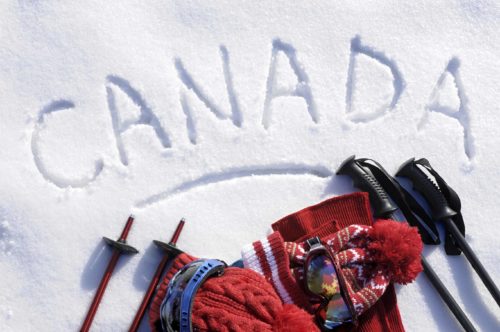
Lesson: Sort out your banking before you move!
For Americans moving to Ecuador, the adjustment is almost non-existent. Ecuador’s currency is the US Dollar, so it’s a pretty straightforward adjustment.
But what about us Canucks? How should we do our banking here in Ecuador? Well, we recently opened an Ecuador Bank account. And while it’s nice to have, it isn’t completely necessary.
Before we moved here, we opened an account with a US bank called RBC Bank USA – through RBC Canada. This is simply their US version. So we have a US Checking account in Florida – but I’ve never been to Florida. The account is linked to our Canadian RBC accounts, so we can transfer back and forth.
When you open your RBC Canada accounts, ask for their USD savings account. We hold our US funds in that account, which keeps it from sitting in our accounts in the States. Its pretty simple really.
We have ATM cards (what we Canadians call debit cards) for our US accounts and we withdraw at the ATM’s here. It costs $1.50 per withdraw, and RBC USA credits back up to $4.00 per month of these fees. They don’t charge any service fees, with a minimum of $700 in the account at all times.
They will wire money internationally. Last week, as we were preparing to purchase our car, I called our US bank, and in less than 24 hours they had wired the money into my Ecuador bank account. I was very impressed.
Not all banks will do this. We have friends from the States and their US banks won’t wire money internationally without them being present in the branch. It’s rather inconvenient.
So if you are a Canadian planning a move to Ecuador, consider RBC Bank USA. If you are an American, you might also benefit from an account. They are flexible and reliable.
By the way, this isn’t a paid advertorial – we just really like this bank.
How to Open an Ecuador Bank Account
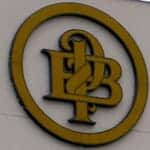
Banco Pichincha has a program just for us extranjeros (foreigners). Here is what you’ll need to open an Ecuador bank account.
Foreigners
- Opening deposit of USD$300
- Opening Application (they fill that out during your meeting)
- Passport or color copy of Identity card (only color)
- Residence Card (Censo of registration from the Ministry of Foreign Affairs)
- Bill (copy) of a basic service: water, electricity or phone (home, not hotel). Must be less than 60 days old.
- If the foreign citizen is a member of a company, attach copy of contract or letter from the company stating its duties and the same time in the country. (foreign workers)
And even though it isn’t officially included on the list – a letter of recommendation is also required. The brochure they had out in branch notes that you need a letter from someone who also has an account there, who will vouch for you.
You know, that you are an upstanding and all around great person. And they must sign it, with their bank account number and cedula or passport number. Not sure of what it actually means, but it is required.
Extranjeros
- Monto de Apertura de USD 300.
- Solicitud de apertura
- Pasaporte a color o copia de Cédula de identidad (solo a color)
- Carné de residencia (Censo de empadronamiento en el Ministerio de relaciones exteriores)
- Copia de planilla de pago de un servicio básico: agua, luz o teléfono (de residencia, no de hotel). La planilla de servicios debe tene run máximo de 60 días de antigüedad.
- En caso de que el ciudadano extranjero sea miembro de una empresa, adjuntar copia del contrato o carta de la empresa indicando cuales son sus funciones y el tiempo de las mismas en el pais.(extranjeros empleados)
For more information, check out the Banco Pichincha site.
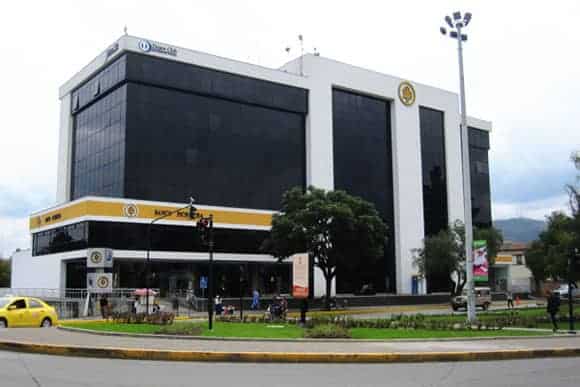
Pictured is the head office for Banco Pichincha here in Cuenca. It is on the corner of 12 de Abril y Av. Solano.
It’s just a couple of minutes from the city center. You don’t have to come here, there are numerous other branches, but this one is the largest in the city.
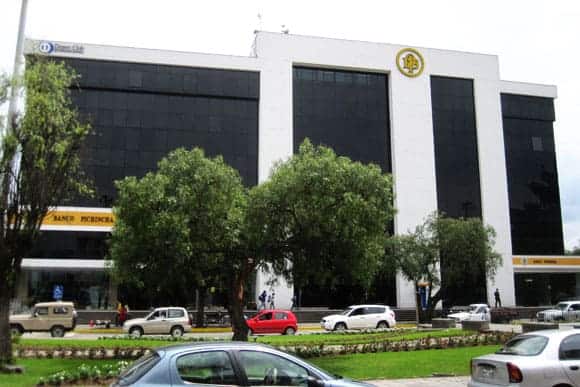

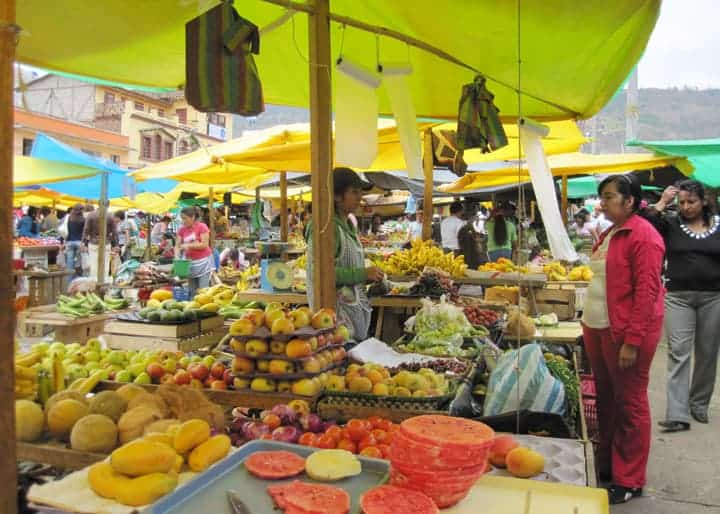
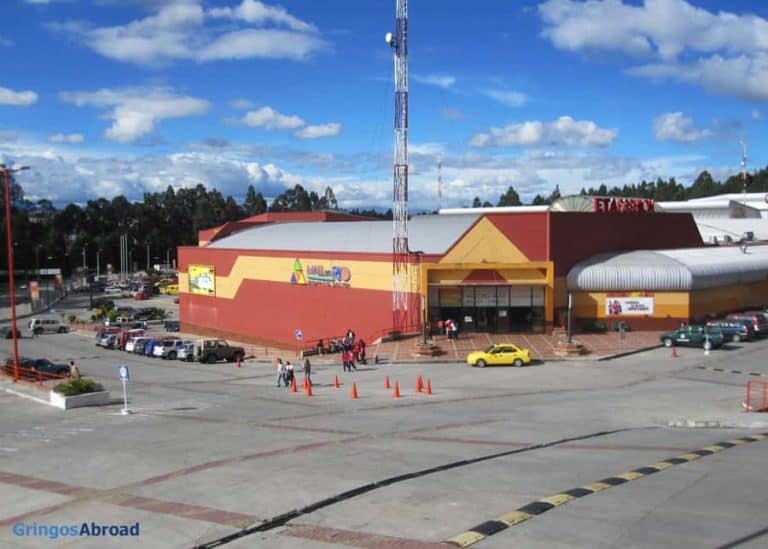
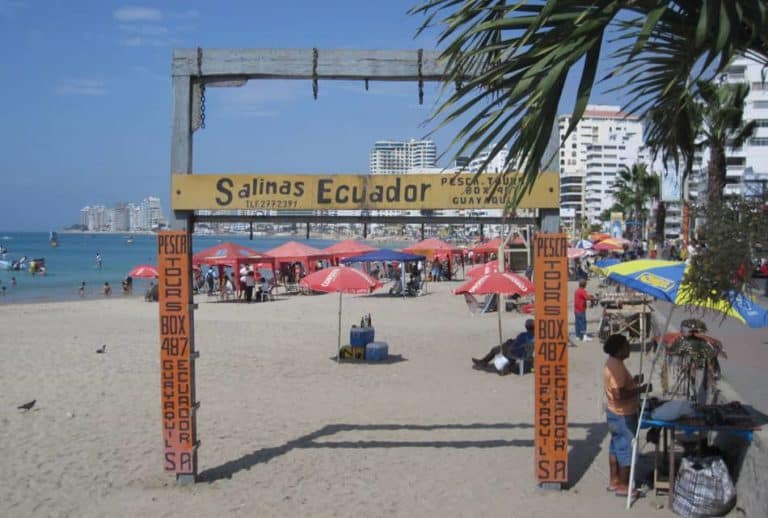
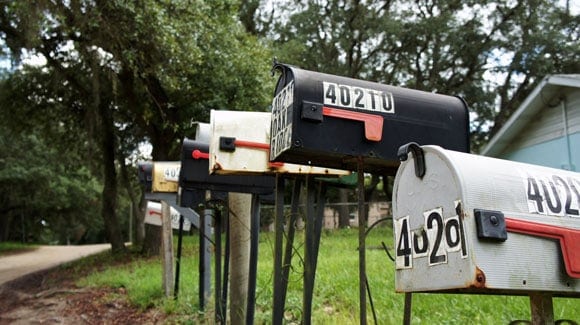
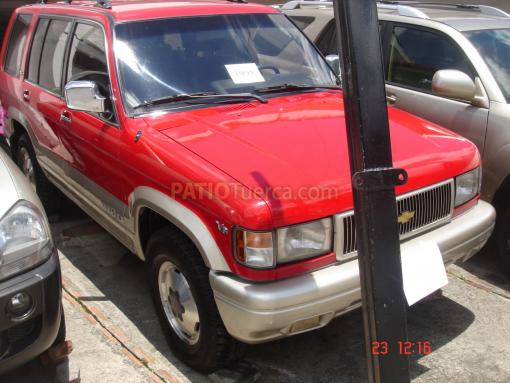

Bryan, have you tried your using your RBC Bank US at a Banco del Austro? We also have an RBC Bank US ATM card and have never paid any ATM fees at withdrawal nor have we had any fees tacked on to our account.
You should really start off your article with “We are Canadians living in Ecuador” since I just got done reading a 2014 article titled “Banking in Ecuador just got more difficult for U.S. expats as FATCA regulations kick in.”
I was wondering why you were speaking so glowingly of opening a bank account in Ecuador, then found out you’re Canadian.
Do you know which bank in Ecuador has the best user friendly website for online transactions? I think Produbanco is great and way better than Pichincha . Do you know of any other bank that is also great?
I live in the US. I will be receiving monthly payment (12-18 months) from someone in Ecuador. I am trying to figure out the best way to transfer this money from Ecuador to USA. I’ve looked at Western Union ($5-$10 fee per transaction). I also considered doing wire transfers. My bank in the US charges $16 per transaction to receive the wire transfer. I’m not sure how much the bank in EC will charge. I was also thinking about opening a savings account in Ecuador to receive this monthly payments and have access to the money. When the payments are complete, I would probably transfer the money to the US and close the account. Do you have any suggestions or bank recommendations with the most flexibility and low fees for wire transfers?
Hey Mr.B ..if someone deposit’s $30,000 in a CD account in Ecuador( for residency), how much interest one can earn monthly.
I am retired from USA and moved back to Ecuador. My pension payments can not be wire transfered to any bank in Ecuador but only to a bank in USA or Canada. And now I need to open a savings bank account in USA so I can have my pension monthly payments wire transfered there, and then I can use an ATM here in Ecuador to get my money. My question is: I don’t have a permanet address in USA and should I need to travel there just to open an account, and what bank will let me use ecuadorian ATM. I can not rely on the Ecuadorian mail service, it is so bad, I lost three checks this year. The only way is for me to get direct deposit, but it can be to an USA bank. Please reply. Thanks.
What did you do BEFORE you opened a bank account in Ecuador. How did you access your money?
We used our debit / atm cards and withdrew directly from our account in the States. In fact, we continued to do that even after we setup the local account.
To bad that process doesn’t really work for Canadians. Maybe you could comment yourself on how you accessed dinero in Ecuador.
I don’t know if there’s a difference. We used credit cards, local bank cards and cheques just like the post discusses. We setup an account with both RBC Bank USA and RBC Canada to make things go smoothly.
Hi,
I inherited a house in Ecuador and sold it for $58,000. How can I transfer that money to my bank account here in the US? I read that there is a 5% tax plus a bank fee of about $70. Is that correct? Is there anything else I should know before transferring? Are there any other taxes or fees that I need to pay? Thanks in advance for any advice!
Dear sir,
I’m interest in learning about how a commercial based company can obtain 60 % commercial purchase and renovation. For hotel in equador. Is the lenders available to do this like USA.
how can I transfer $20,000 from Ecuador to USA, Im planning of selling a real state in Cuenca, Ecuador. Please provide me with options. I dont know any banks that can transfer the money from there to the USA.
Thanks
You can easily do a wire transfer at any of the major banks. We did it a few years ago and it went very smoothly. Just ask your US bank what their routing/swift codes are – and the specifics you need to wire money in. Right now, you’ll pay and exit tax of 5% of the total value of the money, plus wire fees.
Hi Brian,
I have been reading your site and getting a lot of great info Thanks
I retired in June and I am arriving in Guayaquil alone on 1/31/2015 at 4:30 AM for a 4 month surfing tour of Equador and Northern Peru. My plan is to purchase a used car in Guayaquil when I arrive and sell in Guayaquil when I leave. I have traveled in Mexico and Central America but I do not speak Spanish. I would appreciate any recommendations you can provide for the following:
1. A bank in Quayaquil where I can transfer$ from my US bank and get a Cashiers check to pay for the Car. From what I have learned this seems to be the easiest way to do this.
2. An auto shop or mechanic that I can trust to check out the car, that speaks some English.
3. Info on getting local auto insurance and transacting the title change.
4. Any ideas on a local I could pay to curse around with me for a day or two translate and assist in looking for a car and making the transaction?
5 .A modest priced place to stay for a few days in Guayaguil.
Thanks Wayne
My husband, son and I are moving to Puerto Cayo, Ecuador in February 2016. I have similar questions as Wayne except in Puerto Cayo: banking, auto insurance, etc. Thanks.
Thank you
Just curious as to the effect of FATCA on Americans doing banking in EC?
I am curious as to your answer to Frank’s question. This thing has created a lot of confusion here in the staters and in EC. And they wonder why so many people are leaving the country. Thanking you in advance.
I actually didn’t respond to Frank’s question – I don’t know anything about FATCA. Sorry.
Hope this helps:
Foreign banks must hand over the details of American account holders with over $50,000 on deposit or face serious repercussions
After foreign institutions identify U.S. account holders, FATCA requires the institutions to impose a 30% tax on payments or transfers to any who refuse to step up and get into full U.S. compliance.
For those who transfer money between the U.S. and Ecuador, the important thing is to make sure that your FFI is on the current IRS list of those with a valid GIIN.
Here is the approved list of Ecuadorian banks that have complied and have obtained a GIIN from the IRS for FATCA compliance.
Note: This list can change as a new list is published each month by the IRS.
DELBANK S.A.
AFP Genesis Administradora de Fondos y F
ContiSea Holdings Cia. Ltd.
Banco Internacional S.A.
Akaoasesores Cia. Ltda.
Banco de la Produccion S.A. Produbanco
Banco Promerica S.A.
BANCO PICHINCHA C.A.
Banco de Loja S.A.
Banco General Ruminahui S.A.
Diners Club del Ecuador S. A.
INTERDIN S. A.
Banco ProCredit S.A.
Banco Bolivariano C.A.
BANCO DE MACHALA S. A.
Banco del Pacifico SA
PACIFICARD SA COMPANIA EMISORA Y ADMIN
BANCO DEL PACIFICO S.A.
CORPIFEXSA Corp de Inversiones y SA
Cititrading S.A. Casa de Valores
VectorGlobal WMG Casa de Valores, S.A.
Banco de Guayaquil S.A.
EXAMPLE: Here is their situation:
They are in the process of purchasing a new house for $350K, here in Ecuador. The sum total of all their EC bank & financial accounts here is always kept below $10K total at all times, so worries about the FBAR reporting requirements, … right?
So when the house purchase paperwork is finalized, they plan to pay for the house by writing a paper check for that entire amount from their US Bank account, in the name of the seller, which is be deposited into the seller’s EC bank account (Banco Pichincha, which is on the approved list).
And this money will never touch the expat couple’s bank account in Ecuador at any time. (and yes, they are protected from real estate fraud and all that, so no worries there). It will be going straight from their US bank account into the seller’s EC bank account.
The questions is:
Regarding FATCA compliance, (and with Banco Pichincha being on the approved list,) will their US bank withold the 30% of that money simply due to FATCA rules?
I told them no it won’t , but they just want to confirm this is correct.
gyuris: Under the circumstances that you presented, your friends should have no concerns whatsoever. As long as Banco Pichincha has a valid GIIN then there will be no withholding. The FBAR reporting requirement is a separate issue from the FATCA withholding requirement.
I am required to submit an FBAR report annually as I have 7 bank accounts outside the US and the total exceeds reporting requirement. It only takes me an hour to complete and submit the report annually. I have been filing FBAR reports since the beginning of the requirement. So far, I have had no issues with black helicopters landing on my lawn with shadow government officers dressed in black suits climbing out and directing chemtrails towards my house.
FATCA and FBAR are not the same. FATCA places the burden of reporting on FFI’s. FBAR essentially requires that all US citizens who have a combined total of $10,000 or more in a foreign bank at any time during the year file a report. The report is now filed electronically. The report is fairly easy to complete as long as you have the records. The penalties for not filing are rather severe. More information can be found at: http://www.irs.gov/Businesses/Small-Businesses-&-Self-Employed/Report-of-Foreign-Bank-and-Financial-Accounts-FBAR.
The FBAR “self-reporting” threshold is $10K, and the FATCA “self-reporting” thresholds are: $200K for single individuals *residing abroad*, and $400K for married couples *residing abroad*, and $50K/$75K/ if *residing in the US* …, so what happens when someone deposits, say the required $25K into a CD or a savings account in an Ecuadorian bank in order to qualify for their residency Investor’s Visa here in Ecuador?
Say he/she does not report the FBAR, thus violating the provisions of the FBAR, how will the US gov’t find out about it to enforce the FBAR, when the Foreign Bank’s reporting requirement for FATCA purposes is only when their foreign financial assets /accounts exceed the $200K/$400K thresholds (for expats). Will these expat retirees, who are decent folks not bothering anybody, just wanting to be simply left alone, suddenly become … oh my God, SCOFFLAWS! , … or will they fall through the cracks?
Yes, if you are depositing the $25,000 in a CD for Ecuadorian residency then you are required to file an FBAR. It takes only a few minutes and is done electronically so nothing needs to be mailed. Not the end of the world. I have been doing it for years now. The deadline is June 30 to file an FBAR for the previous year.
Thanks Ron!
Well I had to do that as well when I deposited a 10k check, the US wants to know all about your money and your business! Big brother et al.
My wife and I r moving permanently to Ecuador Sept 6 my wife is from Machala I spent 5 years thier Special P that was 19 years ago now we r ready to make the big move we sold our company homes and my Q is would it be advisable to invests our money in Ecuador r the banking systems secure or more secure then they were 19 yr ago??
And on a side note I believe u know Brian Nauss. Correct?
The banking system is more stable than before the 1998/99 crisis. Lots of expats bring some funds – especially for the investment visa, but I don’t know if it is a good idea to bring all your money…
I have been receiving a SSA monthly benefits in Ecuador, using Banco Pichincha but since 3 months ago I have been having problems with my wire transfers from Chase in USA. Up to January 2014, I usually I received my wire transfers in a few hours but since February 2014, it is taking more than 5 days and perhaps more. Please advice me
From my experience with wire transfers they say that it could take up to 5 days to arrive. I wouldn’t worry about it.
When we wired money we would usually receive in less than 1 business day.
Which is the best bank to transfer money to Cuenca Ecuador
You should just check with your bank – likely they can do it. I haven’t heard of issues with international transfers.
One question I had :” There is Bank of America in Quito-Ecuador ?….if there is , can I had the address “
Thanks for the helpful information! — i am wondering what the procedure is for purchasing a home in Cuenca ie can expat get a loan and what information do they require? do they do us credit check or can they? should i get my own and bring it or print it oout there? what criteria would one need to get a loan – or are there other options? if you dont have this info perhaps you could head me in the right direction? I hope to be there well b4 the end of 2013 and i am voraciously reading all i can find on the process. Thank you!
I am in the process of buying an apartment in Quito. So far, my agent is been doing great since he has a lawyer degree so he knows the ins and outs. I am closing at the end of the month. He’s done the legwork!
I could direct you to him if all goes well.
Let me know.
V
Hi, would I be able to use my debit and cards from the USA without having to open an account in an Ecuadorean bank ? I understand one needs to be a resident before opening an account.
Would Amrican debit and credit cards allowed in stores, restaurants and supermarkets ?
Please shed some light on this for me. I am “lost”. Will be moving some time this year to Ecuador. Before I become a resident in Ecuador, how would I deal with my money ? I intended to keep my SS direct deposit as it is now in Bank of America, and use my debit cards to withdraw money from the ATM’s. I understand there’s a fee involved, but isn’t it ok to do do so ? Thanks. Awaiting to hear from you at your convenience.
Yes, most cards from the US will work. Make sure you have a 4 digit PIN number. Many stores only accept cash, so your debit card will be most important – so you can withdraw funds at atms.
Much thanks, Guy!
Regarding Guy’s comments with electronically transferring money from your US Bank to your Ecuadorian Bank, via xoom.com. Sounds interesting, Guy. What all is involved besides providing them with the Ecuadorian ABA/Swift number, address and your local banks similar information? 2% transfer fee could be hefty if one transfers several thousands dollars.
Thanks
Steve: It has been a while since I set up my xoom.com transfering account, but I do not recall it being complicated at all beyond the basics you mention. I use this service to get money quickly and safely to our Ecuador bank account (Pichincha) usually to pay bills online. $29.99 for a quick $1500 is worth it to me when I need money now. It would be the same/or more to get the money out of an ATM, but then I would have to stand in line to make the cash deposit. Xoom.com just eliminates one of my pet peeves of living in Ecuador, and that is standing in long lines! 🙂
I didn’t read all the above comments to see if anyone else mentioned, but if you do not want to wait the ten days for a check to clear, I use xoom.com to electronically transfer money from our Stateside bank to our Ecuador bank. It usually takes 2-3 hours, and only costs 2% fee of the amount being transferred. Check it out.
Is there a BBVA branch in Cuenca?
What is BBVA?
I was informed that when you first move, you cannot start a checking account, unless you have a ‘cedula’, true? A savings account, yes. We’re applying for a ‘Residents Visa’ and have pretty much completed all the necessary paperwork required. Once all this is certified and accepted, and we have an address, does that then qualify us for a checking account? And in the mean time, we’ll take your advice and use our local checks and ATM card for assistance. There is another bank, from what Ive been told that also does auto-deposits and on-line banking, and that is Produbanco We also want to have our Social Security checks automatically deposited into our new Ecuadorian account, so we contacted the American Embassy in Quito; they explained that once an account has been set up with either Produbanco or Banco de Guyaquil, we are then required to come to the embassy either in Quito, or Guyaquil, bring our passports and the bank account info, and they will give us a form to fill out, which will allow us to receive these deposits within a month or two. Anyway, that’s what we were told. Has anyone had a similar experience with this?
Much thanks!
Steve
Thank you for your advice on banking in Ecuador. I have some concerns and may be moving soon to Ecuador: I have a loan in the States and will need to pay it off monthly. I plan on working and earning money in Ecuador, but my bank doesn’t have a branch in Ecuador. Do you have any suggestions for getting money back to my bank in the States for my monthly payments? I know I could do a wire-transfer, but I’ve heard that’s spendy. What do you think?
Which bank in Ecuador, in your opinion, is the most trustworthy and guaranteed?
Thanks!
banking in ecuador- i realize this is a question for an atty. however would like your input. my husband died in ecuador. i spoke with him the night before. but we were to talk the next morning re how to handle things re his assets in ecuador and offshore accts. we had traveled allover but i did not travel to ecuador. he passed away before our next conversation. what steps would you take. i know everything is very different. Thanks for any advice.
Which Ecuadorean bank(s) have online banking to pay bills, and what is required to open an account?
Hi Howard, my experience is with Banco Pichincha. The requirements are in the post above Some banks require that you have a cedula to open an account. This bank requires just a passport. We pay some bills online, and we are going to look into paying others.
Bryan, I just got back from Cuenca and I heard from a few people that on way to get legal residency is to deposit $25,000 into an Ecuadorian bank…. and I also heard that they pay a much better rate on savings accounts/CD’s. The interest rate that was being tossed around was 7.5 percent. Do you know if any of this is true and can I open up an account from the USA or do I have to live in Ecuador to have money in their banks??? Sorry for all these technical questions… hoping you have some answers.
Hi George – you heard correctly. Actually the interest rate goes from 4.5% as high as 11-12% depending on where you invest it and for how long. The chartered banks and some investment houses are guaranteed by a government agency in case of failure – but many aren’t covered. It would be worth checking out.
I don’t know if you can invest from abroad – I suppose if you setup a power of attorney it would work well. I would suggest you speak with a lawyer.
Brian, thanks for the reply…… It is nice to have an e-friend to ask all these questions. I think there is a fear threshold of the unknown that we all try to see over. You and your wife are helping us with that… Thanks again.
Good advice. Being able to use a debit card at the grocery store is a nice option. And I am glad to hear that you can pay bills online. However, I take it that paying rent with cash is still standard practice?
I work on contract for a Canadian company. They wire my pay directly to Banco Pichincha every month after I submit my invoice.
It sits there collecting about 10 times more interest than it would in a Canadian bank (that's still not saying much). But at least there's only that once-a-month wire fee that they deduct from my pay.
I've used a credit card once in this country, just after I moved to Cotacachi, my first home in Ecuador, to buy glasses after mine broke. The terrain's uneven enough without being unable to see it!
Jeff
Wells Fargo/Wachovia in the US has an agreement with the Banco de Guayaquil whereas one can transfer funds to Ecuador (either cash or to an account) using the internet. The first transaction must take place in a US branch. After the initial setup, just log on and complete the transfer on the website. Then with the correct I.D. go to any branch and pick up your money. (Kind of like Western Union) No need for an account at BdG when picking up cash. The limits are $1000/day and $9000/month. Cost is determined by the monetary value of your US accounts – and is free if your accounts exceed a certain value. As you mentioned, writing a check works good tool – it just takes a little longer to clear.
Thanks for the info. on Wells Fargo/ Banco de Guayaquil connection. There are obviously different ways of managing money for expats and what works for one may not work for others. For those who want to avoid going to the bank to make large cash withdrawals the check deposit option described in my blog comment may be the way to go. It all depends on what you are comfortable with and what options your home bank has available. Thanks again for your comment.